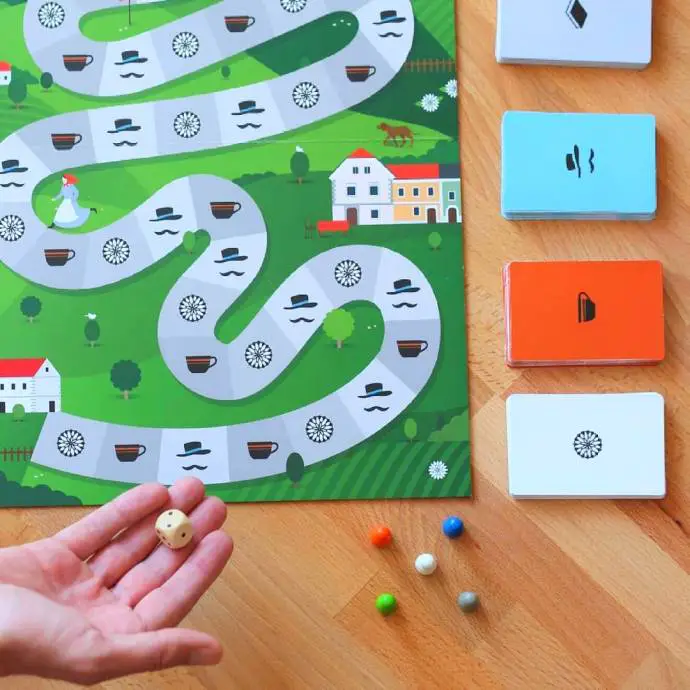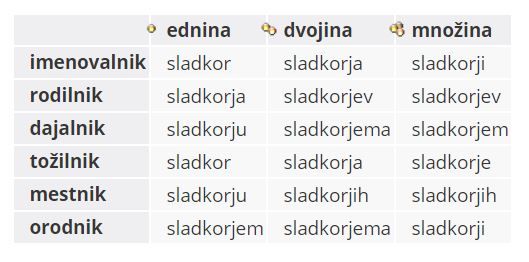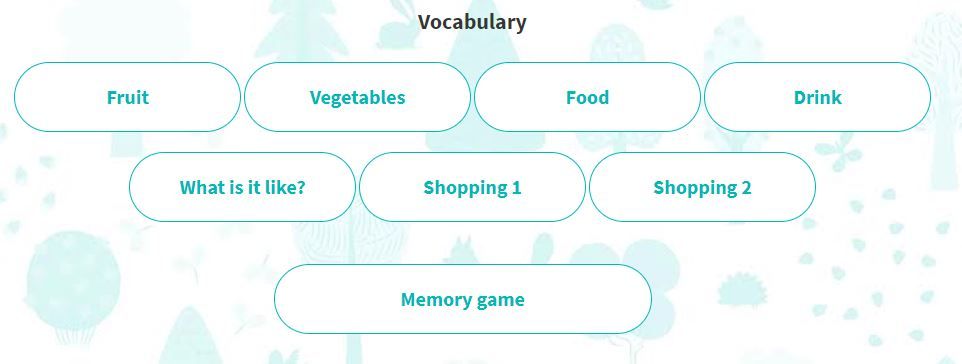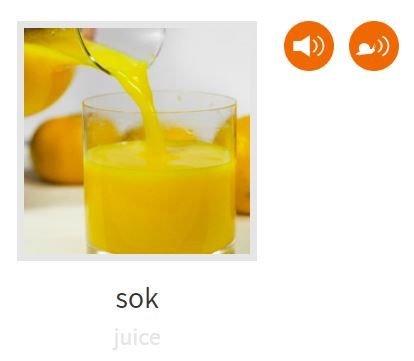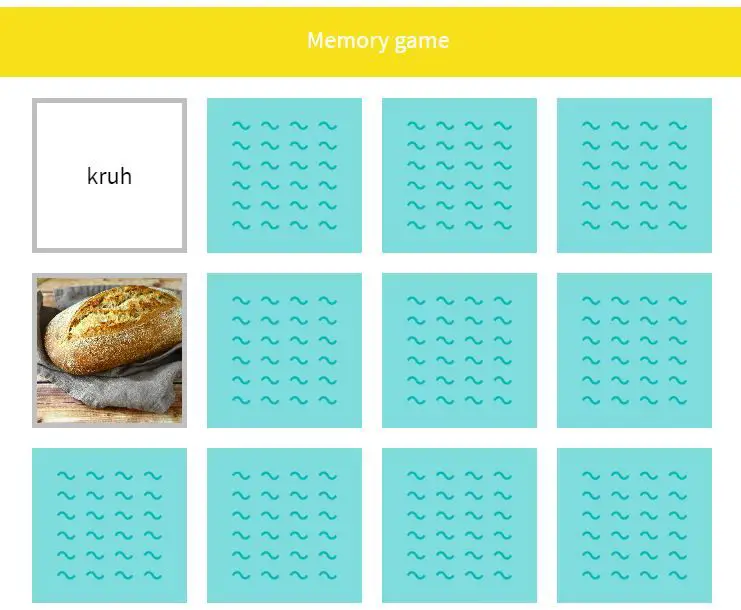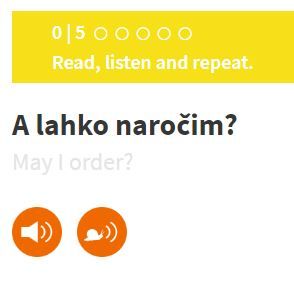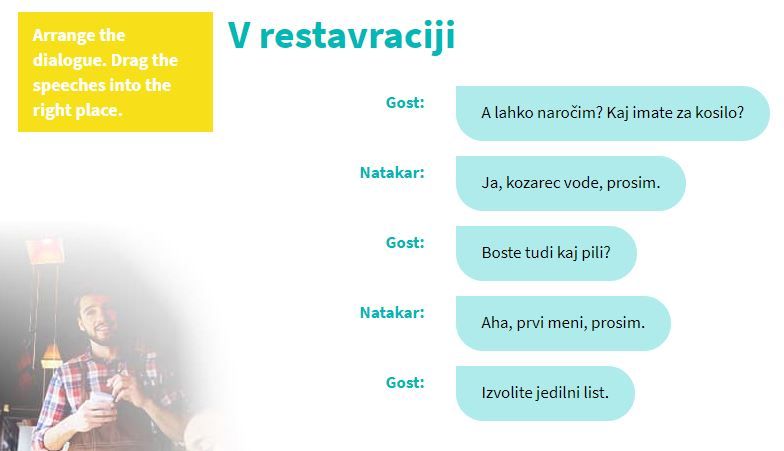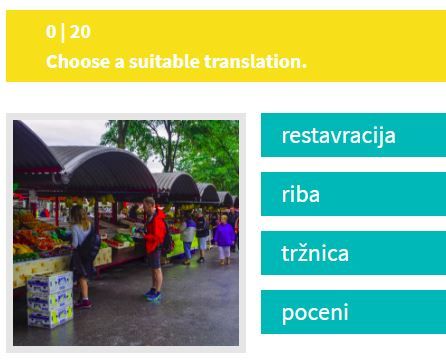September 11, 2018
Perhaps the best way to improve your life in Slovenia is to learn the language, making you more independent and opening up a greater range of social and career opportunities. And learning Slovene, at least to a basic level, is also essential if you’re going to pass the language test that’s part of the process for getting dual citizenship, a particular concern for British nationals in the country as Brexit, deal or no deal, moves ever closer. (Find out how to get dual nationality in Slovenia here.)
The many forms of sugar. besana.amebis.si - A really good resource, but not basic
While it’s possible to learn on your own, especially if you already know the basics, getting started can be difficult, mainly due to the declensions (aka skloni). These can make things very challenging for a complete beginner, as you ask a friend what the word for ‘sugar’ is, and in one context it’s sladkor, another is sladkorja, another sladkorjem…and so and so and so and so on. It’s here the discipline, motivation and peer support of regular classes can help, following a textbook, going through drills and having a teacher who’s paid to listen to your bad Slovene, offer suggestions, and answering any questions (tasks that can soon before a chore for any friend or partner).
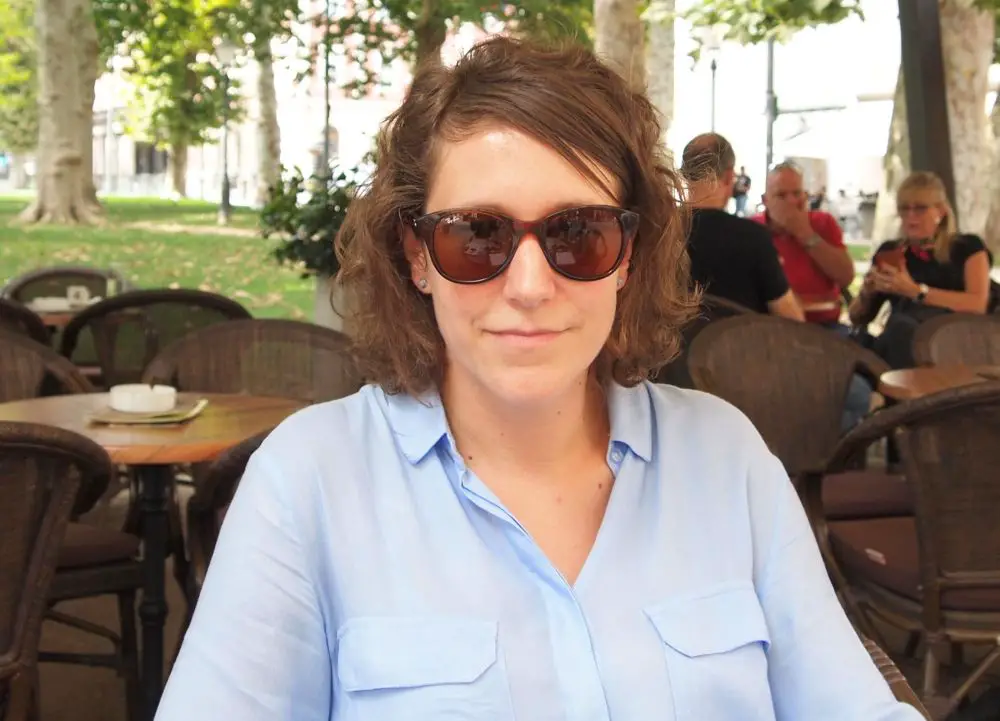
Branka Gradišar, Head of the Slovene Language Courses Programme
In Ljubljana such classes are organised by the Centre for Slovene as a Second and Foreign Language (Center za slovenščino kot drugi in tuji jezik), part of the university. However, these classes, the details of which can be found here, are just one part of the centre’s work, and I recently me up with Branka Gradišar, Head of the Slovene Language Courses Programme, to find out more about what’s on offer for those who want to engage more deeply with the local culture. She’s a Professor of Slovene Language, and has been officially at the Center since 2010, although she was also working there as a student from 2006.
Do you have many corporate clients?
Not as many as before the last financial crisis, but some companies still contact us. We do some Skype lessons for the European Central Bank, but also people who come here to work in Slovenian banks. Other companies will also send their staff to us and pay for the classes. That said, the corporate side isn’t the majority of students, and mostly it’s people who come on their own.
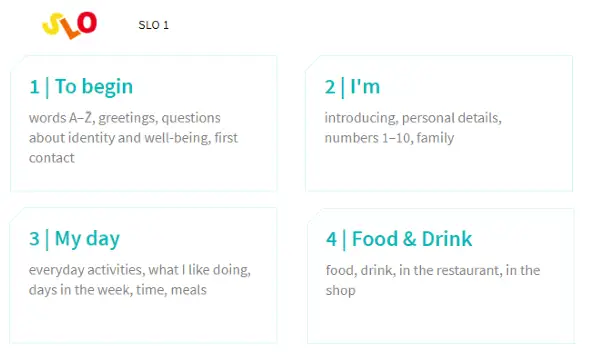
When are the next classes?
There are some intensive ones for Erasmus students in next couple of weeks, but in general the next classes start on October 1st. Officially registrations end the 18th of September, but we take them right up until the first day. For the autumn school, the intensive morning classes, we’re expecting 40, 45 students, so five groups. The afternoon course [JLF – which is really the evening course, from 18:00–20:30] I’d say about 30, 35 at the moment.
What kind of groups are there?
Usually we have one or two groups of beginners, Slavic and non-Slavic speaking, with a lot of Russian and Ukrainians in the former. Then one or two intermediate levels, and sometimes an advanced group. Some of the older Slavic speakers don’t feel comfortable using English, so we teach in Slovene, but in general the language of instruction is English, when it’s needed. And most younger Slavic speakers are also happy with that, especially since many are taking degrees taught in English.
Any changes in the kind of classes people are taking this year?
Yes, recently we’ve had more people apply for the intensive class to prepare for the basic level exam, the one to get nationality. We run that four times a year, and it’s 20 hours in one week, with the next one November 5 to 9 [2018]. As part of this students go through the various exercises that’ll be in the test, every evening, from 17:00 to 20:30. The test is just A2, B1 level, very basic, but you need to be able to understand and write some basic texts. You can take an example test online.
The Basic Level Exam Sample Test (A2−B1)
The Intermediate Level Exam Sample Test (B2)
The Advanced Level Exam Sample Test (C1−C2)
Have the students changed over the years?
Yes, it feels like it. In the past people went out together more, partied, did activities. In the last few years I’ve noticed that people have started to just look at their notebooks or phones in the breaks, and being less social can make it more difficult to get a good group dynamic in class.
Do you have anything for people who can’t come to Ljubljana?
Yes, Slovene Learning Online (SLO) is a free online course specially designed for foreigners, developed at the Centre, it’s for anyone who wants to learn the basics of the language their own in a simple, playful and effective way.
It was actually launched at the end of 2017, but there’s been some improvements over the year. The basic level is now “finished”, and this presents some simple vocabulary, phrases and dialogues, without an grammar lessons or notes on declension. So you can learn in usable chunks of language, rather getting lost in theory, with each part moving through learn, practice, produce and check stages. The hard work was setting the system up, getting it right, but now that’s been down we’ll be launching versions in other languages, not just English, and then add some intermediate, more advanced levels in the years ahead.
If you want to learn more about the Center then it’s website is here, while details on upcoming courses can be found here, exams here, and that fee online course – registration required – can be found here. Meanwhile, if you already speak some Slovene then keep an eye out for our regular language features on Total Slovenia News, including our weekly dual texts, with the full set here.

